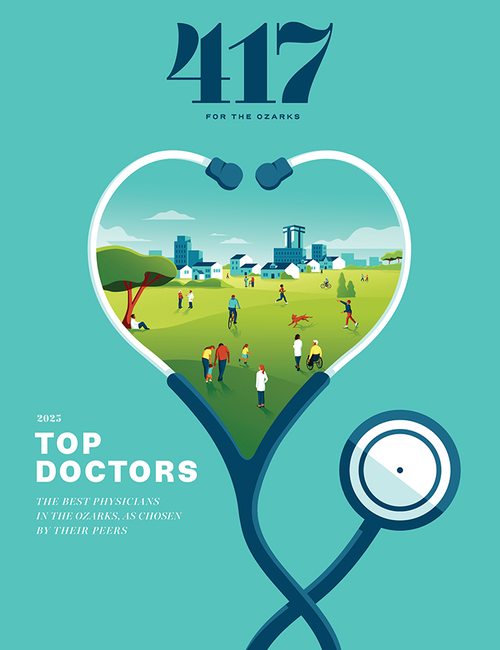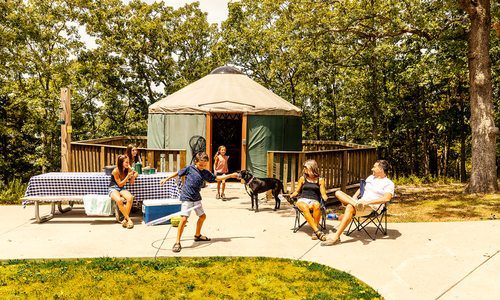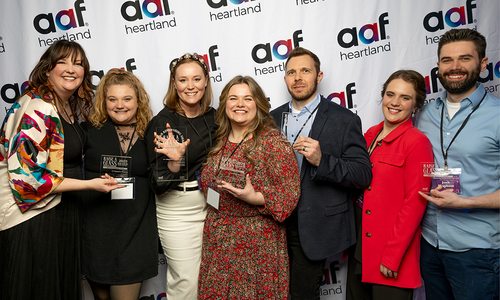
Lifestyle
Where to Turn for Local Autism Resources
When faced with a child’s diagnosis of a developmental disability, families might feel unmoored and isolated in learning how to equip their child with the tools to lead a successful, independent life. Fortunately, 417-land is full of resources.
By Erin Gregory
Apr 2018

Parenting is hard enough as it is, but where do you turn for help when your child is diagnosed with autism? Autism is a developmental disability typically recognized when an individual has difficulty with social interaction, problems with verbal and nonverbal communication and repetitive or obsessive behaviors. Autism is almost five times more common among boys than girls. Fortunately for local parents, 417-land is full of resources that help families understand this diagnosis and equip their children with valuable life skills through childhood and beyond.
“Autism is on the rise in the country and a very important diagnosis families are dealing with now,” says Danielle Wise, Director of Development at The Arc of the Ozarks, an organization dedicated to serving individuals with a variety of disabilities. “The community is essential in assisting families in understanding and coping with the diagnosis.”
The Arc is one of several organizations in the Ozarks that seek to help families cope with autism and help individuals live an independent life. The Arc provides a variety of resources for families dealing with autism, including the family advocacy department. The Arc is one of the only groups in the area that offers this service, allowing individuals the opportunity to gain an understanding of what steps they will need to take when facing a diagnosis of this type.
The Arc also hosts several educational and recreational programs with a variety of activities to encourage students to broaden their social skills and independence. For students elementary school age and older, The Arc’s academy, Rivendale Institute of Learning & Center for Autism, provides an alternative education for students ages 6 to 21, including a one-on-one learning environment for each individual. “The goal is for individuals to move out of this school and into the public-school system, or the workforce, and become a functioning member of society,” Wise says. Although scholarships aren’t offered, The Arc works to provide services that each family needs individually. “We can even provide 24-hour support to several individuals,” Wise says.
Another growing organization in Springfield which seeks to offer services to growing adults with autism is the Perspectives Preparatory Academy (PPA). “PPA is a tuition-free private school that places an emphasis on inclusion, strength-based learning and advocacy in the community,” says Nacy Ryerson, co-founder of PPA. “Currently, PPA serves 24 students ages Kindergarten through seventh [grade]. Our unique student population is served in a personalized learning environment at each student’s pace.
Approximately 50 percent of the student population qualifies under IDEA as a student with a disability (however, PPA prefers the term differing ABILITY), and the other 50 percent does not qualify and would spend 100 percent of their day in a general education setting if they were in a traditional setting. Eight percent of the student population is gifted or twice exceptional.”
PPA plans to grow into a K–12 school and desires to support students and families in the transition to college and the workforce. PPA has already begun creating relationships with local businesses to begin an internship program for high school students to support student interests. PPA knows that allowing students to utilize their strengths puts graduates in a place to succeed and enjoy their chosen careers and degree programs.
PPA believes that putting students in an environment early to explore their passions and strengths leads to better outcomes upon graduation. Every student has a Strength-Based Learning Plan that places an equal emphasis on what a student’s strengths are, and PPA encourages students to be a part of these plans so they learn to advocate for themselves upon graduation.
Because PPA is a tuition-free school, it relies on donors to support more students and families. PPA desires to add more classrooms in the next several years and needs support from the community to be able to support more learners. The school hosts monthly tours and social events as well as free informational events to the community, making itself an even more visible resource for families learning how to live with an autism diagnosis.












